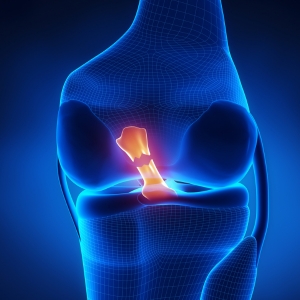Women’s health problems encompass a wide range of issues that can often be overlooked, but they are a very important part of staying healthy. Physical conditions can involve menstrual irregularity, reproductive health, menopause, stress incontinence to ailments such as cancer, heart disease, and osteoporosis. Here we will cover just five of the more common conditions that require medical attention so you can stay on top of them, and feel at your best.
Urinary Tract Infections
Urinary tract infections (UTIs) are very common and most women will have had one at some point or another. They are caused by bacteria, such as E. coli, entering the urinary tract and multiplying in the bladder.
Common symptoms include a burning sensation when urinating, frequent urination, painful pressure in the lower abdomen and cloudy urine that may have blood in it.
Apart from looking at the symptoms, the doctor may ask for a sample of urine to be tested. Treatment for a UTI usually involves a course of antibiotics and sometimes painkillers prescribed by your doctor.
To prevent UTIs you should:
- make sure you drink plenty of water throughout the day
- practice good hygiene after you go to the toilet (wipe from front to back)
- wash the vaginal area before and after sex, and pass urine soon after
- avoid tight fitting synthetic underwear
- don’t hold too long if you feel the need to urinate
- avoid using scented soap
Ovarian cysts
Ovarian cysts are fluid filled sacs or pockets in an ovary. Their size can range from smaller than a pea to larger than an orange. While most ovarian cysts are harmless, some can cause symptoms such as bleeding, pain and pressure. Cysts in polycystic ovarian syndrome (PCOS) can be associated with other symptoms, such as irregular menstrual cycles, excessive hair growth, and difficulty in getting pregnant.
Although most ovarian cysts are benign, some may be cancerous and a family history of ovarian cancer can increase your risk. Diagnosis typically involves an ultrasound and blood tests.
Treatment of ovarian cysts depends on the size and type of the cyst, as well as the symptoms. Small, harmless cysts usually go away on their own with watchful waiting. They are common and often occurring during the normal menstrual cycle, i.e., functional cyst. It is estimated that one out of every five women experience a functional ovarian cyst at some point in their lives.
Hormonal medications may be prescribed to shrink the cyst or prevent its recurrence. However, if an ovarian cyst is causing discomfort or growing rapidly, it may be surgically removed and sometimes the ovary is removed too.
It is important to be aware of the signs and symptoms of ovarian cysts, and seek medical attention early. Regular check-ups can also help detect changes in the ovaries before any serious complications develop.
Endometriosis
Endometriosis is a debilitating and painful condition that affects women of all ages. Tissue that normally grows inside the uterus starts to grow outside of it, causing intense pain and symptoms like heavy bleeding during menstruation.
The causes of endometriosis are still largely unknown but thought to be connected to lifestyle factors, genetics, and problems with the immune system. Common signs and symptoms include pelvic pain before and after periods, exhaustion and intestinal issues. If left untreated, endometriosis can cause fertility problems or even ectopic pregnancies.
Treatment for endometriosis typically involves hormone therapy to reduce the amount of oestrogen in the body, as well as surgery to remove any endometrial tissue that has grown outside the uterus.

Fibroids
Fibroids can be frustrating and sometimes painful.
Generally, fibroids are noncancerous tumours that form on the wall of the uterus and can cause menstrual issues. While the cause of fibroids is unknown, risk factors include age, genetics, hormones and obesity. Common signs and symptoms include heavy menstrual bleeding, frequent urination, lower back pain and pelvic cramping.
Medication may alleviate the symptoms , however surgery may be recommended if the fibroids cause severe symptoms.

Breast Cancer
Breast cancer is an increasingly common form of cancer that affects both men and women. In Hong Kong, 1 in 14 ladies is diagnosed with breast cancer. The causes of breast cancer vary, but can include inherited genetic mutations and prolonged exposure to certain hormones. Early detection is key for successful prognosis, so women who experience any signs or symptoms such as a lump in the breast or armpit area, bloodstained discharge from nipples or dimpling of the skin, should seek medical advice.
If the cancer is caught very early, it can be surgically removed. However, late diagnosis usually requires more extensive surgery, followed by targeted radiotherapy and/or chemotherapy.
Cancer may be a taboo that people do not like to talk about, but it’s incredibly important that anyone who experiences symptoms speak to their doctor as soon as possible – early detection will give them a better chance of successful treatment.

Prevention
Lifestyle changes are at the forefront when it comes to prevention of health problems and adopting these measures can help all round:
- Choose a balanced diet packed with nutrient-dense foods, like fruits and vegetables,
- Take dietary supplements that contain minerals and vitamins for deficiencies
- Do regular exercise. It reduces the risk of health conditions, including heart disease and diabetes.
Although lifestyle changes can help prevent some medical problems, having regular health checks can identify problems earlier, which can promote better treatment outcomes. In addition, it is also important to seek medical advice quickly if something doesn’t seem right as getting an accurate diagnosis is essential for finding the best treatment options.
Women’s health can be complex, but it does not have to be intimidating. Becoming aware of the most common health issues, and understanding the risk factors associated with them is a critical aspect of being proactive about your health.
If you want to learn more about managing your wellness, contact the Matilda Medical Centre at 2537 8500 for a health check or specialist appointment.
Articles on this website are informative only and not intended to be a substitute for professional medical advice, diagnosis or treatment. They should not be relied upon for specific medical advice.

Information provided by:
Matilda International Hospital







